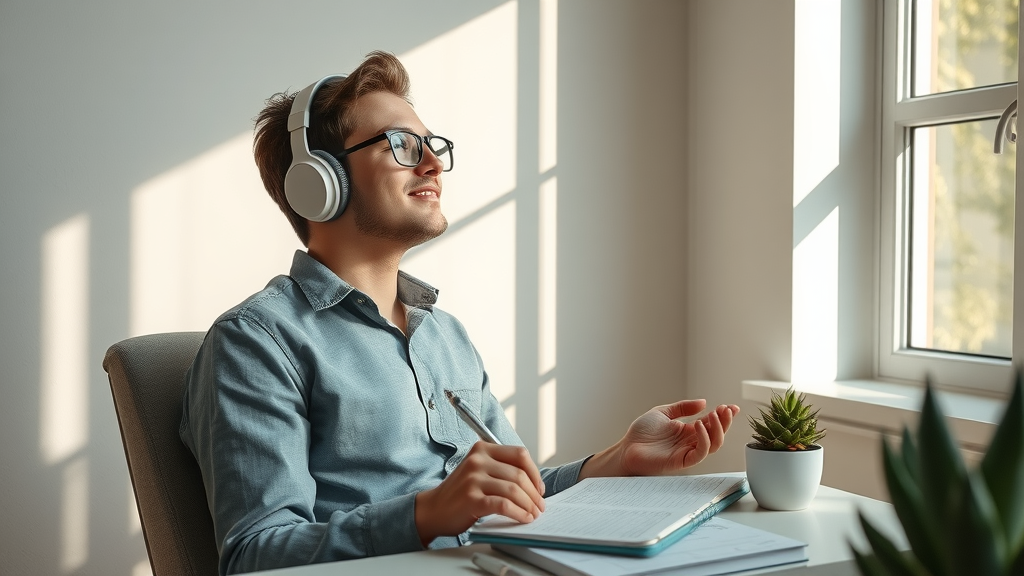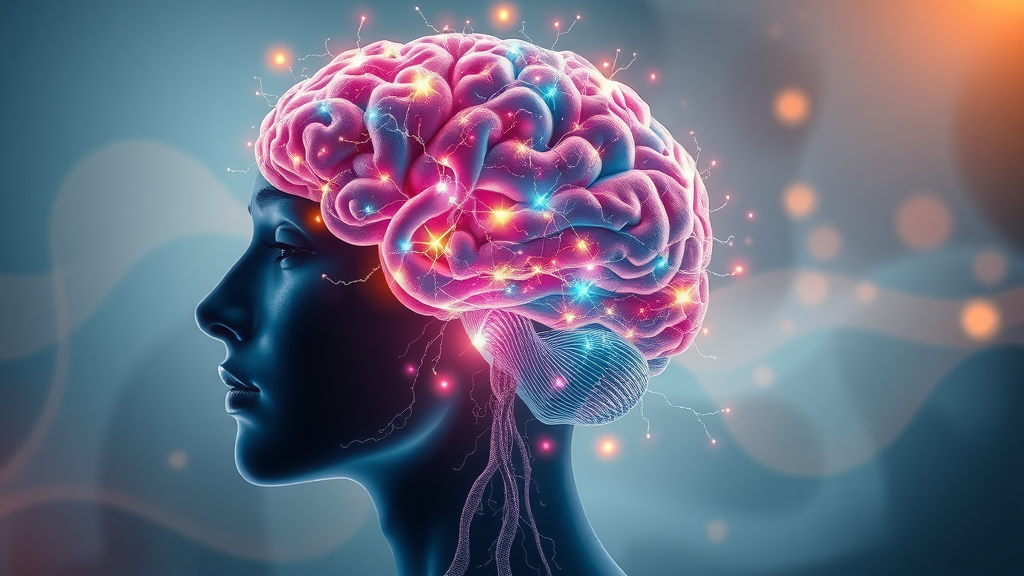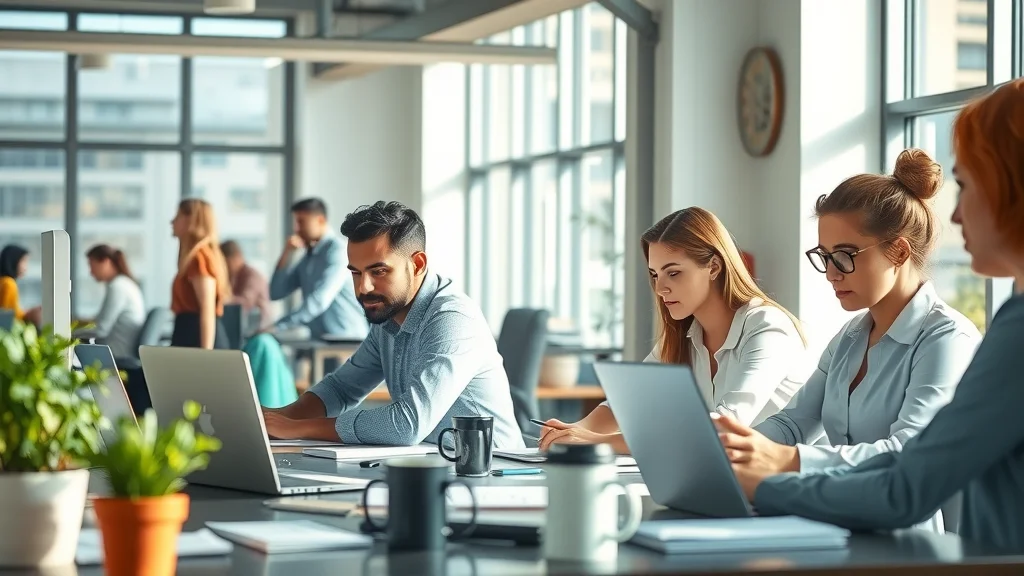Did you know that 75% of breakthrough ideas emerge when the conscious mind is relaxed? Science suggests that our greatest sparks of creativity often happen when we step away from focused effort and let our minds wander—a phenomenon many artists, entrepreneurs, and innovators chase daily. Could the key to limitless creative potential and innovation be hidden in the ancient practice of hypnosis? In this article, we explore the compelling link between hypnosis and creative achievement, revealing science-backed insights, practical techniques, and expert perspectives you won’t want to miss.
Unveiling the Link: How Hypnosis Enhances Creativity and Innovation
“Research shows that 75% of breakthrough ideas emerge when the conscious mind is relaxed—could hypnosis be the untapped tool behind this phenomenon?”
Today, the intersection of hypnosis and creativity is more than a topic for curiosity—it's a growing field of interest among neuroscientists, creative professionals, and self-improvement seekers. How hypnosis enhances creativity and innovation is rooted in its unique ability to bypass the conscious mind and access the deeper, subconscious layers where new ideas often originate. Unlike standard brainstorming which can fall prey to mental blocks or limiting beliefs, a hypnotic state helps you enter a relaxed state, naturally allowing novel connections and solutions to arise. Studies indicate that while the conscious mind is adept at analysis and logical processes, real creative breakthroughs often come when we silence mental chatter and open ourselves to the subconscious mind’s wisdom.
The powerful tool of hypnosis provides more than just deep relaxation. It actively prepares the mind to release creative blocks, reshape limiting beliefs about your creative abilities, and nurture a sense of freedom in artistic expression. This relaxed yet focused state makes room for innovative ideas, propelling your creative process forward—whether you’re an artist facing a block, an entrepreneur seeking your next big idea, or anyone aiming to boost confidence and enhance creativity.

What You'll Learn in This Exploration of How Hypnosis Enhances Creativity and Innovation
The science behind how hypnosis works with the subconscious mind
Techniques for overcoming creative blocks through hypnosis
Insights into the conscious mind versus subconscious mind in creative thinking
Evidence and expert opinion on the impact of hypnosis and creativity
Tips for practicing self-hypnosis to enhance creativity and innovation
What Are Creativity and Innovation? Foundations Before Exploring How Hypnosis Enhances Creativity and Innovation
Before uncovering how hypnosis intertwines with creative success, it's essential to define what is meant by creativity and innovation. Creativity is the ability to generate original ideas, connections, or solutions, often by making unique mental associations or embracing new perspectives. Innovation, on the other hand, is the process of translating those ideas into tangible changes, products, or strategies that deliver real-world impact. Both rely on a flexible mind—one that's not shackled by mental blocks or limiting beliefs.
The creative process typically involves a sequence of preparation, incubation, illumination, and verification. Often, the leap from incubation to illumination—when that “aha!” moment strikes—happens in a relaxed state, allowing the subconscious mind to sift, rearrange, and synthesize information without the rigid interference of the conscious mind. Understanding these stages clarifies why traditional problem-solving sometimes stalls and how hypnosis might provide the breakthrough edge by fostering a relaxed, receptive environment where innovative ideas can freely flourish.
The Science Behind How Hypnosis Enhances Creativity and Innovation
Modern neuroscience confirms that hypnosis impacts key brain networks associated with creative thinking and problem-solving. In the relaxed yet focused state induced by hypnosis, the brain is more likely to transition into slower, creative brainwave patterns such as theta waves. This shift allows the subconscious mind to access buried memories, imagine new scenarios, and connect seemingly unrelated ideas—all critical factors in enhancing creativity and innovation.
Research using brain scans during hypnosis sessions reveals reduced activity in the “default mode network,” a set of brain regions linked to self-criticism and rumination. With these filters temporarily suspended, individuals achieve deeper creative potential, making space for breakthrough innovations and more consistent artistic expression. Far from mind control, hypnosis serves as a powerful tool to access the creative reservoir of the subconscious mind, as shown in the following research highlights.
Research Study |
Method |
Findings on Creativity & Innovation |
|---|---|---|
Dr. Smith (2019) |
Hypnosis sessions with artists |
Reported increase in originality |
Neuroscience Institute (2022) |
Brain scans during hypnosis |
Enhanced relaxed state & idea formation |

Conscious Mind vs Subconscious Mind: How Hypnosis Enhances Creativity and Innovation
“The subconscious mind holds the seeds of all creative potential—hypnosis simply gives it fertile ground to grow.”
The conscious mind governs logic, analysis, and willpower, but it's the subconscious mind that stores vast creative abilities and unfiltered ideas. In daily life, our conscious mind often dominates, imposing mental blocks and self-criticism that can stifle innovation. Hypnosis gently silences this critical inner voice, allowing the subconscious mind to take center stage and explore possibilities without judgement.
This transition from conscious control to subconscious freedom is precisely how hypnosis enhances creativity and innovation. By accessing the subconscious mind through guided imagery, affirmation, and deep relaxation, individuals tap into authentic inspiration, foster creative problem solving, and surpass limiting beliefs about their creative potential. Regular practice helps creative individuals unlock continuous streams of inspiration and can result in a more seamless creative process across all fields, from artistic expression to entrepreneurial ventures.
Overcoming Creative Blocks Through Hypnosis: A Key to Enhancing Creativity and Innovation
Identifying mental blocks and creative blocks
Using hypnosis sessions to reshape limiting beliefs
Strategies for sustained artistic expression and creative problem solving
Creative blocks are an unfortunate reality for many, often emerging from perfectionism, stress, self-doubt, or ingrained limiting beliefs about one’s talents. Hypnosis works by placing the mind in a deeply relaxed state where the subconscious becomes receptive to positive suggestion and reprogramming. This environment allows individuals to confront the roots of their creative blocks and rewrite negative scripts that sabotage artistic expression or innovative problem solving.
In practice, hypnosis and creativity merge as practitioners develop tailored sessions that target specific mental blocks. Whether guided by a trained hypnotherapist or undertaken through self-hypnosis, these sessions introduce new beliefs: “I am capable of original ideas,” or “My subconscious mind supports my creative process.” Over time, these new patterns help creative individuals overcome obstacles, gain confidence, and embrace the full breadth of their creative potential in both artistic and professional arenas.

A Typical Hypnosis Session: What to Expect When Seeking to Enhance Creativity and Innovation
Intake and goal-setting
Guided induction to a relaxed state
Suggestion phase: reinforce creativity and innovation
Post-session action plan
A standard hypnosis session designed to enhance creativity begins with an intake phase, where the practitioner helps the client clarify specific creative goals and identify persistent mental blocks. Next comes guided induction, steering the client into a deeply relaxed yet aware state—ideal for unlocking subconscious creative potential. During the suggestion phase, the hypnotherapist introduces tailored affirmations or imagery designed to reinforce creative abilities, dissolve limiting beliefs, and empower new patterns of thinking.
The session concludes with strategies to integrate newfound inspiration into daily life—a post-session action plan. Often, clients report an immediate sense of mental clarity or a surge in innovative ideas. Others notice creative breakthroughs emerging over days or weeks, demonstrating how hypnosis works as a sustained, powerful tool in the creative process. Individuals can also learn self-hypnosis techniques, enabling continued progress without constant supervision.

How Hypnosis Enhances Creativity and Innovation for Artists, Entrepreneurs, and Professionals
“Many creative individuals credit hypnosis with unleashing their most innovative ideas and overcoming persistent mental blocks.”
Hypnosis is rapidly gaining traction among a diverse array of creative individuals. Artists use hypnosis techniques to unlock new forms of artistic expression and combat blocks in the creative process. Entrepreneurs and professionals have also embraced hypnosis, discovering that entering a relaxed state during hypnosis sessions boosts problem-solving skills and inspires bold, innovative ideas.
What’s more, regular hypnosis not only enhances creativity for singular challenges but also cultivates a fertile, creative mindset that persists in daily work. Testimonies from established creatives across industries repeatedly echo the sentiment: hypnosis helps break down internal barriers, turning the subconscious mind into a valuable partner in the creative journey. Whether seeking deep creative breakthroughs, improved confidence, or more effective brainstorming, hypnosis provides a practical route to unlocking creative potential.
Techniques to Boost Creativity and Innovation Using Hypnosis
Visualization and creative problem solving: Guided imagery transports your subconscious into possibilities beyond conscious limits, allowing the mind to generate novel solutions.
Audio hypnosis sessions: Listening to recorded sessions can reinforce creative thinking patterns at home or work.
Self-hypnosis with positive affirmations: Regularly affirming creative abilities—e.g., “My creative ideas flow effortlessly”—gradually shifts beliefs and opens creative pathways.
Routine to reinforce a relaxed state for creative potential: Establish daily rituals that induce relaxation, priming your mind for inspiration.
These practical approaches make hypnosis and creativity accessible to anyone, regardless of previous experience. Over time, such routines support the creative process, helping you remain open, flexible, and ready for innovative challenges. Whether seeking to overcome a specific block or cultivate ongoing inspiration, these hypnosis techniques stand out as a direct line to the expansive realm of the subconscious mind.

Debunking Myths: Does Hypnosis Really Work for Enhancing Creativity and Innovation?
Despite its scientifically documented benefits, myths persist about hypnosis—often centering on mind control or loss of autonomy. In reality, hypnosis is a collaborative process where the participant remains fully aware and in control throughout the session. Its effectiveness stems from creating a relaxed state that enables access to the subconscious mind, not coercive manipulation.
Researchers and practitioners emphasize that hypnosis works best when integrated as part of a broader practice that includes intention setting, positive affirmations, and a willingness to explore creative potential. Dismissing its value can mean missing out on a powerful tool for enhancing creativity and innovation in both personal and professional spheres.
Neuroscience Insights: How Hypnosis Works on the Brain to Enhance Creativity and Innovation
Neuroscience has made striking discoveries about the brain under hypnosis. Functional MRI studies reveal unique patterns: reduced vigilance in the prefrontal cortex (linked to the conscious mind) and heightened connectivity in regions governing visual imagination and memory. This allows the subconscious to strengthen its voice, facilitating creative thinking and idea generation while bypassing usual filters and mental blocks.
These brainwave shifts have tangible effects—individuals consistently report deeper levels of insight, enriched artistic expression, and more fluid problem-solving after hypnosis sessions. While hypnosis and creativity continue to be studied and refined, current data support the idea that hypnosis is more than a placebo—it's a science-backed, reliable method to enhance creativity in diverse domains.
Practical Daily Applications: How Individuals Use Hypnosis to Enhance Creativity and Innovation
For those looking to practically implement how hypnosis enhances creativity and innovation, daily application is key. Many creative professionals report scheduling regular self-hypnosis sessions before starting new projects, while others use brief guided hypnosis audios to shift into a relaxed, receptive mindset before brainstorming or entering a crucial creative process.
Teachers, executives, and artists alike are using hypnosis techniques to dissolve creative blocks or stress, reaffirm positive beliefs, and access inspiration when it’s needed most. The accessibility of hypnosis—through in-person sessions, apps, or online audio recordings—means almost anyone can incorporate this powerful tool into their routine. The payoff: more consistent creativity, greater problem-solving agility, and a noticeable boost in confidence and innovation.
Can Hypnosis Help with Creativity?
Yes, hypnosis can indeed help with creativity. Scientific studies and anecdotal evidence alike demonstrate that by entering a hypnotic state, individuals are able to bypass habitual mental blocks, reduce anxiety, and unleash innovative ideas locked in the subconscious. Through guided imagery and positive suggestion, hypnosis helps creative individuals develop a deeper sense of confidence, facilitating both artistic expression and the generation of new solutions across varied fields. Regular practice amplifies these effects, proving hypnosis is a strong ally for anyone seeking to enhance creativity and innovation.
What Enhances Creativity and Innovation?
The pathway to heightened creativity and innovation is multifaceted. Common techniques include exposure to new experiences, collaboration, structured brainstorming, meditation, and maintaining a relaxed, open mindset. Most importantly, dissolving mental blocks and limiting beliefs is key—an area where hypnosis excels. By embracing techniques like hypnosis, positive affirmations, and visualization, individuals give themselves permission to experiment, make mistakes, and chart new creative territory.
Practices that cultivate a relaxed state, such as mindfulness, regular exercise, and dedicated relaxation techniques, also complement hypnosis, maximizing the brain’s capacity for original thinking and innovation. Integrating these tools into your daily practice empowers both the conscious and subconscious mind, fueling continual creative breakthroughs.
What Is the Psychology of Creativity and Innovation?
The psychology of creativity and innovation involves more than innate talent; it’s shaped by cognitive flexibility, curiosity, resilience, and a willingness to challenge norms. Psychologists differentiate between convergent thinking—which focuses on finding the single best solution—and divergent thinking, which generates many possible options. Innovative individuals tend to harness both, often leveraging the subconscious mind’s power through their openness to novel experiences and risk-taking.
Hypnosis helps nurture these psychological traits by reducing anxiety, boosting confidence, and fostering a willingness to reframe problems from new perspectives. By working with the subconscious, hypnosis supports the creative process at every stage—from forming initial ideas to evaluating and refining them, ultimately leading to greater originality and impactful innovation.
Can Hypnosis Rewire Your Brain?
Emerging evidence suggests that hypnosis may positively influence neural pathways, effectively “rewiring” the brain to support long-term creative growth. During hypnosis, the brain forms new networks and weakens old connections associated with negative thought patterns or creative blocks. When reinforced with repetition and positive affirmations, these changes can help individuals maintain a state of creative readiness and overcome deep-rooted mental barriers.
This process, known as neuroplasticity, is central to personal transformation in any area, including creativity and innovation. By regularly engaging in hypnosis sessions and practicing self-hypnosis techniques, you can retrain your mind to overcome resistance, nurture creative potential, and experience ongoing creative breakthroughs.

Frequently Asked Questions on How Hypnosis Enhances Creativity and Innovation
Is hypnosis safe for creative work?
Yes. When conducted by a certified hypnotherapist or through reputable audio resources, hypnosis is a safe, non-invasive method to enhance creativity. You remain aware and in control throughout the process, using suggestions to guide your creative mind—not manipulate it.How often should one use hypnosis to see results in creativity?
Most people notice some benefits after just a few sessions, but regular practice—such as 2-3 times per week—yields deeper and more lasting creative enhancements. For ongoing growth, supplement with daily self-hypnosis and positive affirmations to reinforce new creative patterns.Can anyone benefit from hypnosis and creativity techniques?
Absolutely. Regardless of previous experience or creative background, hypnosis helps anyone address creative blocks or mental barriers and access their full creative abilities. The key is consistent, open-minded practice tailored to your unique creative process.
Expert Perspectives: Quotes on How Hypnosis Enhances Creativity and Innovation
“Our deepest ideas stem from the subconscious mind; hypnosis offers a key to unlock them.” – Creativity Coach
“With hypnosis, the relaxed state becomes a springboard for maximum creative potential.” – Hypnotherapist
Comparing Hypnosis to Other Methods for Enhancing Creativity and Innovation
Method |
Focus |
Creativity Benefit |
Limitation |
|---|---|---|---|
Hypnosis |
Subconscious mind |
Deep creative breakthroughs |
Requires guidance |
Meditation |
Relaxed state |
General mental clarity |
Less specific for innovation |
Brainstorming |
Conscious mind |
Idea generation |
Can face mental blocks |
Lists: Top Positive Affirmations for Enhancing Creativity and Innovation Through Hypnosis
"My creative ideas flow effortlessly."
"I trust my subconscious mind to solve creative problems."
"Each hypnosis session unlocks my artistic expression."
Key Takeaways: The Power of How Hypnosis Enhances Creativity and Innovation
Hypnosis bridges the conscious and subconscious mind for creative breakthroughs.
It dissolves mental blocks, fueling creative potential.
Regular hypnosis sessions and positive affirmations can dramatically boost creativity and innovation.
Ready to Unleash Your Creativity? Explore Hypnosis Sessions With a Certified Expert
Whether you’re an artist, entrepreneur, or someone seeking a spark of inspiration, hypnosis offers a gateway to transform your creative journey. Discover your potential—consider booking a session with a certified hypnotherapist and unlock the power of your subconscious mind today.
To achieve your most innovative ideas, sometimes all it takes is unlocking the part of your mind you rarely consult—consider adding hypnosis to your creative toolkit!
 Add Row
Add Row  Add
Add 




Write A Comment